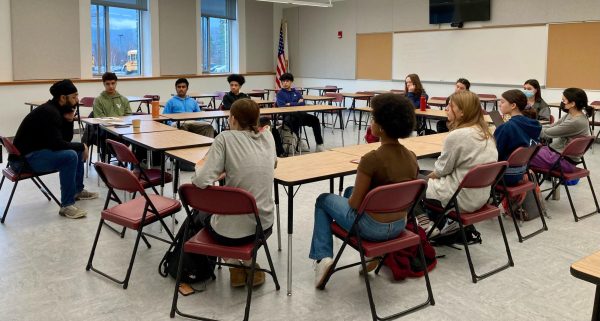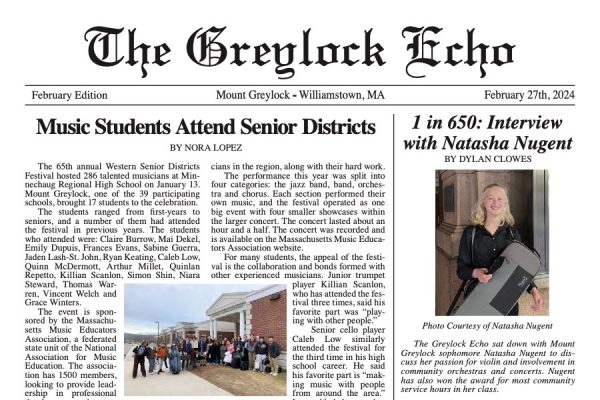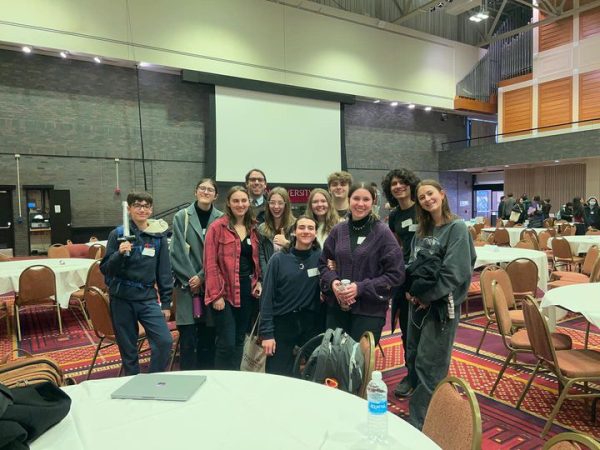Yes or No? The Echo’s Guide to the Massachusetts 2018 Ballot Questions

On November 6th, voters in Massachusetts will consider three questions. Below is a description of each one as well as what a “yes” or “no” vote means.
Question One
Question one on the Massachusetts midterm election ballot regards patient-to-nurse ratio limits. If this legislation goes into effect, it would restrict the number of patients assigned to a single registered nurse. The number of patients per nurse would depend upon the unit. For example, in an emergency room, five non-urgent stable patients, 3 urgent stable patients, 2 urgent non-stable patients, and 1 intensive care or critical patient per nurse. It would also help nurses to determine if the limit is appropriate-some situations may require a nurse to have less patients if the patient’s condition requires it. Violators of the law will be fined a maximum of $25,000 by the Health Policy Commission and if the violation continues after the medical is notified of its violation, a $25,000 maximum fine per day will be given. A violation may be reported by use of a toll-free phone number or website. An employee cannot be disciplined in any way for following the law, and the law must be followed from the time a patient arrives to the time they leave the facility. A “yes” vote would limit the number of patients per nurse, whereas a “no” vote would not make a change to the current law in regards to restricting the number of patients allowed to be treated by one nurse.
A contract in effect on January 1, 2019 allowing the number of patients per nurse to be higher will not be overridden: the new law will be in effect as soon as the former contract expires. The upside to creating this law would be that when a nurse is stretched between too many patients, the patients often do not receive the full attention they need. Medications may be improperly handled and the patient could develop other complications from not being given the proper time and attention.
The downside: Hospitals would have to pay an additional $67,800,000 to $74,800,000 yearly in order to comply with the law and the Health Policy Commission would be required to spend $1,281,000 yearly to make sure facilities follow the law.
Question Two
Question two will ask voters to consider a commission on limiting election spending and corporate rights, which would essentially create a commission of 15 citizens to regulate corporations in five areas. For one, the commission would be able to examine the impact of corporal spending on the state. They would make sure corporations follow certain laws implemented by the state and the Supreme Court. It would also be able to recommend adding amendments to the Constitution and would analyze the amendments brought to Congress. The law would be effective as of January 1, 2019, and there would be a thirty day window to apply for a position on the commission.
A “yes” vote would allow a commission of citizens to form, which would be able to advance an amendment preventing corporations from influencing elections by use of money. A “no” vote would prevent the citizens’ commission from forming.
The upside to this law would be fairer elections and quashing the ability to buy and influence politicians with money. It would not raise taxes.
The downside is that corporations would not be allowed to play a major role in elections. They would also have less privacy, as their finances would be monitored by the commission.
Question Three
The third question on the ballot concerns a law promoting transgender anti-discrimination within any public place. These places include restaurants, hospitals, stores, hotels, sports arenas, schools, and any other public accommodation where, according to the law, a person cannot be discriminated against based upon their religion, race, ethnicity, nationality, gender, disability, or any other qualities. Also, according to this law, which is pre-existing, advertisements cannot contain discriminatory content based upon one’s gender identity. The law states that bathrooms must be open to all genders instead of solely being male and female. Essentially, it works to ensure that Massachusetts remains open and inclusive to all people. Not following the law and discriminating against a person can result in up to a $50,000 fine and a year behind bars.
A “yes” vote would enforce this original law, which was implemented on October 1, 2016. A “no” vote would repeal the law.
The upside to keeping the law (a “yes” vote) is that Massachusetts would continue to be an open and lawfully undiscriminating state in which all types of people are welcome. This would insure that every person be treated with the same respect and receive the same service as anyone else.
The downside is that without the opportunity to discriminate based on gender, some people feel that their privacy would be violated. An example of this would be a man entering a female locker room posing as female. These concerns have been voiced through the “Keep MA Safe” initiative, which urges MA citizens to vote “no” on question three.








